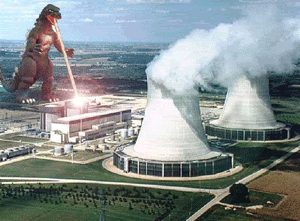Congressional watchdog to probe nuclear fire safety
 Congressman David Price (D-N.C.) announced yesterday that the Government Accountability Office has accepted his request to investigate fire safety standards at nuclear power plants across the United States. The study is expected to get underway in September.
Congressman David Price (D-N.C.) announced yesterday that the Government Accountability Office has accepted his request to investigate fire safety standards at nuclear power plants across the United States. The study is expected to get underway in September.
Price requested the study in May after hearing from local officials in his district who were concerned about the Nuclear Regulatory Commission's failure to enforce fire safety regulations. The agency developed the regulations following a 1975 blaze that nearly resulted in a meltdown of Alabama's Browns Ferry Unit One reactor, but many nuclear plants have failed to fully comply -- and the NRC hasn't forced them to. Instead, the agency is currently exercising its enforcement discretion to exempt violators from sanctions until 2015. It's also considering allowing offenders to transition to a "risk-based" system in which plants would calculate fire threats for different areas and selectively upgrade protections, an approach that some nuclear safety advocates have criticized as "faith-based" since fires behave so unpredictably.
Progress Energy's Shearon Harris plant in Price's district ranks among the nation's worst for two violations: the use of failure-prone barriers to protect electrical cables, and reliance on untested stopgap measures in case of fire. And fire is a very real concern for Harris: The plant has experienced at least four blazes since opening in 1987, with a major electrical fire in 1988 taking three hours to quell.
Last year, a coalition of five watchdog groups including the N.C. Waste Awareness and Reduction Network and the Union of Concerned Scientists filed an emergency petition asking NRC to close Harris until it comes into full compliance with current fire safety regulations or impose the maximum fine of $130,000 per violation per day. The NRC rejected the petition, despite agreeing with the facts it presented, according to N.C. WARN Executive Director Jim Warren.
Meanwhile, an investigation released last month by the Nuclear Information and Resource Service found that the recently restarted Browns Ferry Unit One reactor still doesn't meet the fire-protection regulations established directly as a result of its own near-disaster -- despite the fact that the Tennessee Valley Authority spent $1.8 billion on the reactor's reopening.
The news that GAO would look into nuclear plant fire safety came the same day NBC News revealed undercover investigators with the agency were able to fool the NRC into providing them with a license to obtain radiological material that could be used to make a dirty bomb. The Senate Committee on Homeland Security and Governmental Affairs' Permanent Subcommittee on Investigations is holding a hearing on the matter today.
(Illustration courtesy of the Union of Concerned Scientists)
Tags
Sue Sturgis
Sue is the former editorial director of Facing South and the Institute for Southern Studies.
